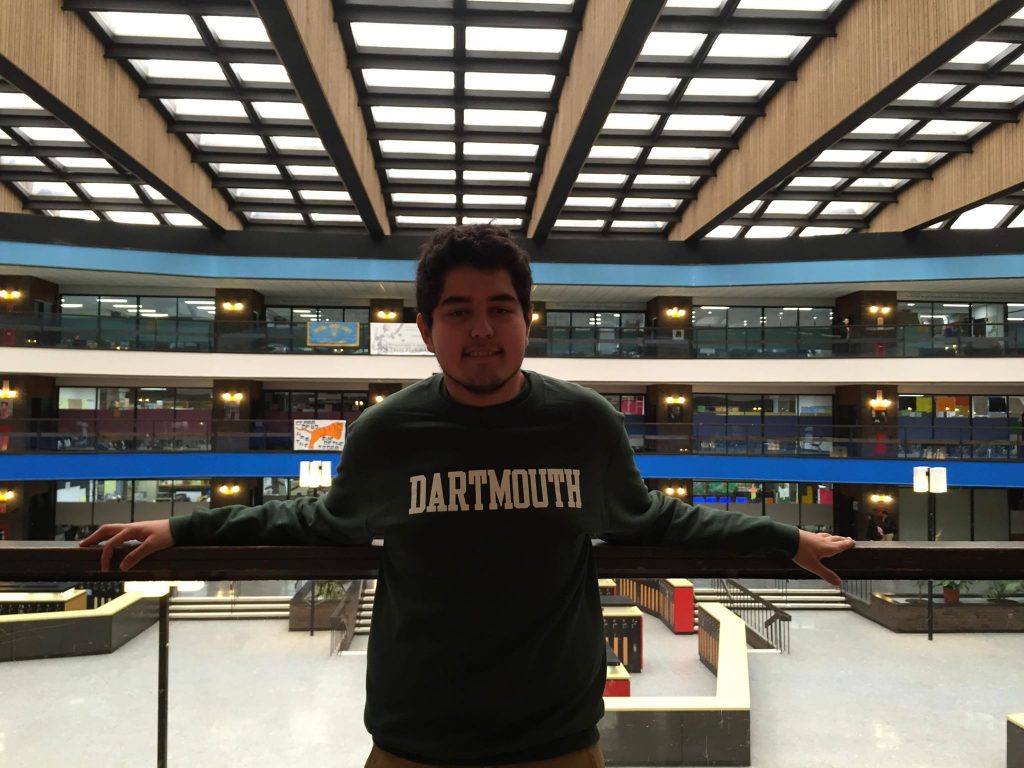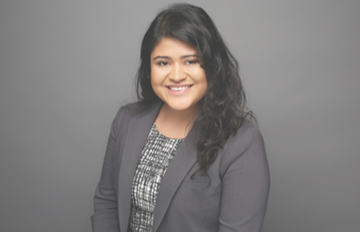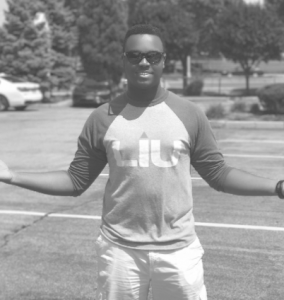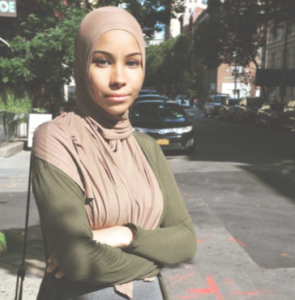Last updated on Nov 16, 2017
By Jacqueline Escobar
Contributing Writer
Despite the chaos in the world and reports of prejudice in the news, many minorities in the United States – blacks, Hispanics, Muslims, and others – are excelling academically in college and thriving in life generally. Too often, we forget the contributions they make in our communities, socially and culturally. It is disappointing to see the rage that they experience when still being labeled as the minorities in our multicultural society. Students often feel stigmatized when labels are placed on them, often because of their socio-economic status. Many overcome the labels, however, soar through this issue and lead by example. Blacks, Hispanics, and other minorities in our communities should not feel like outcasts, because all lives matter.

Pablo Correa, the 2016 salutatorian of Hempstead High School, is a sophomore at Dartmouth College. Although he is undecided about his major, he is leaning towards anthropology, with global health and chemistry minors. He is also on the pre-med track. Before entering college, he was actively involved in his high school, serving as Vice President of the Hempstead High School class, Vice President of Club Truth, President and Refounder of Future Doctors of America, and more. Correa, who was born in Colombia, came to the United States when he was four years old. As high school came to an end, he became determined to face the next chapter of his academic career with determination and excellence. Yet, he felt like an outcast during the college application process. “I can’t say for sure that I have experienced racial profiling, but I have felt like an outsider in many different situations, most of them here at Dartmouth or when I was visiting other schools like Princeton or Cornell,” he said.
Correa has encountered moments when he felt uncomfortable sitting in class in college because he was the only racial/ethnic minority in the room. Yet, he has not allowed this to deter him from academic success. Correa continues to go to events on campus and he makes it apparent that he is a low-income, first generation college student. Correa became actively involved in Dartmouth’s First Year Student Enrichment Program. This program enables first-generation students to become used to the college environment. With the help of the director of the program, he became acquainted with the resources Dartmouth has to offer, which helped him in his transition into the new environment. Correa’s mother reminds him to ignore the connotations placed on him because of his race. He continues to give back to Hempstead High School students by returning to discuss Dartmouth and the college application process.
“While in college, it’s very important to focus on yourself and not where everyone else is at,” Correa said. “I know that’s a very difficult thing to do, but it is also important. The only person you should compare yourself to is your older self.”

Karen Lopez, a senior at Columbia University
Karen Lopez, the 2014 Valedictorian from Hempstead High School, is a senior at Columbia University, majoring in economics. She was born in El Salvador and came to the United States when she was eight years old. She is now happily living in the city. The transition from Salvador to the United States was difficult for her because English wasn’t her first language. As time passed, Lopez practiced English with the help of her third grade teacher. Fast forward to senior year, Lopez realized how challenging the college application was for her. She focused on Ivy League schools because of the need-based financial assistance. The competitiveness of applying to these schools drove her hunger to become intellectually challenged.
“Focusing on Ivy Leagues and coming from a school like Hempstead High School was hard in itself because I found people doubting me. I didn’t have too many people to look up to. I couldn’t speak to my parents about the stress of the process and I couldn’t look at anyone else in my family because I was the first one to consider going to college. This truly tested my perseverance as I questioned myself many times if I was good enough to go to a top college,” she said.
Lopez felt intimidated at first when she visited colleges and it was difficult for her to find her voice in a new environment. She saw that there weren’t many students with her racial background at the top Ivy League schools. This has driven her to work even harder in her school work to show that she can make it in life, regardless of where she comes from. Although it took her a year to embrace her culture at Columbia University, this was the time she needed. She decided to join Latinxs, a student organization on campus. This transformed her whole college experience.
“I realized that while I did like being exposed to different people, I also needed the space to spend time with people who looked like me and who were facing similar struggles. Through this organization, I met some of my closest friends and started to learn a lot from them about Latinidad and what it meant to be trailblazers in our communities,” she said.
Dondre Lemon, a junior journalism major at LIU Post who is black, was born in Stoneham, Massachusetts and moved to the Bronx when he was six months old. The transition from the city to Long Island was difficult for him when he arrived at Post.

Dondre Lemon, junior at LIU Post.
“When I first arrived on campus, I did feel different from the other students because the majority of the students were from Long Island and I was a city kid that didn’t know certain topics students would talk about,” he said. Although this took a toll on him when he started at Post, his passion for unity of cultures drove him to become more interested in reporting and journalism. Lemon has demonstrated to professors and others that it depends on the individual, not the color of their skin. People would not have guessed that Lemon was a reporter in the Bronx while he was in high school. He demonstrated excellence by receiving an award for his reporting skills and by publishing two articles with the nor news. Lemon is a staff writer now for the LIU Post school newspaper and the creator of the new PTV- Pioneer news show. He is thankful for the support system that has helped him with his transition to the college environment.
“Almost every professor helped me in some way. A lot of them definitely made the transition easier for me and warmed me up to the campus. I definitely know my success coach helped a lot, making me feel comfortable, if I had any problems; I know I can go to her for anything. Having friends has also helped me, and what makes it better for me is that I am meeting new people of different cultures, which I feel everyone should have in their circle of friends,” he said.
Next year, Lemon will take an editorial position on the student newspaper. He continues to be an inspiration for students coming from low socio-economic backgrounds who may lack confidence in their abilities.
Lemon believes that the negative stereotyping and labeling needs to change. “The first thing I do is tell my friends of color not to classify any group. Don’t say all whites this, or Muslims that. Right now, we need to be together and be united, no matter the color of your skin,” he said.
As a reporter, Lemon wants to show others that they do not have to have a high socio-economic background or grow up in a wealthy community to make it in any career they desire. “If I can inspire one person that they can make it just the way they are, I will definitely feel like I have made a difference in the world,” he said.
Amoy Brown, 2016 graduate of Hempstead High School, is now a sophomore at the University of Albany, with

an English major and journalism minor. She was born in Jamaica and moved to America when she was five years old. Brown has also felt like an outcast in a college that’s predominately white. Growing up in Hempstead, people had expectations of how she is supposed to behave. However, she proves them wrong.
“My skin color is something that I have definitely became more conscious of,” she said. Also with the world today, it’s kind of hard to do anything without thinking about the barriers that race does cause.”
In Brown’s college environment, she has noticed instances in which she was the only black person in her class, but she didn’t let this hold her back. “Just because I’m more conscious of it now doesn’t mean it makes me any less confident in who I am or what I do,” she said
With this confidence, Brown has taken advantage of what the university offers. She noticed how UAlbany celebrates cultures. She found various organizations that help empower people of color like herself. She joined an organization called the Black Theater Production, which promotes the performing arts for people of color. In addition, Brown was awarded a journalism internship with the student affairs media team. She also joined an organization called “Her Campus,” an online magazine where she can express herself.
Tibian Ahmed, a senior at Stony Brook University, was born and raised in Brooklyn, NY. Ahmed, who is Muslim,

Tibian Ahmed, a senior at Stonybrook University
has encountered many instances when she has been racially profiled and has felt like an outcast, especially during her years of schooling.
“As early as elementary school all the way through my now final semester at college. It’s happened at work, my internships, even in personal settings meeting some of my non Muslim friends’ parents,” she said.
At times, in social settings at school, Ahmed has felt tested because of the comments made about her. She noticed how students would take pictures of her and make fun of her while she was sitting in the dining hall. People would also taunt with her hijab. Ahmed was the only girl who wore the hijab at her first school, SUNY Brockport. “People would purposely work in groups of three so that they wouldn’t work with me,” she said.
Ahmed has had uncomfortable situations with professors as well. During her freshman year at SUNY Brockport, students were assigned a 10 page research paper and the professor gave the topics to the students. The professors gave her, ‘Should the U.S Iraq war have started?” She was the only student assigned this topic. She had no choice but to comply with the professor’s request. In order to make this assignment unbiased, Ahmed made sure she asked other students if they thought the war should have started. Towards the end of her presentation, the professor stated her own biased opinion.
Ahmed has encountered other moments when professors would make thoughtless statements about Islamic terrorism or extremism and try to convince her that her hijab is an inconvenience. Also, professors at both colleges she attended have asked her how the process was for her family coming to the United States as refugees. Ahmed felt as if they were committed to setting a low standard for her by assuming she wasn’t American. Ahmed had to overcome these situations on her own because her parents didn’t have the same experiences. Because her siblings are significantly younger, they too didn’t understand what she has gone through. Ahmed also realized the significance of the date September 10, 2001, the day before 9/11. This was the day she placed her hijab on for the very first time, when she was six years old.
Although she has faced criticism, Ahmed used this to elevate herself in school instead. She began interning at CNN. She interned with white men who were middle aged and she noticed how they had a different tone with her as she stepped in to contribute.
“I get it, because they didn’t experience people like me. This is a pattern; this is how they have been taught to think, and it’s a bigger issue. It’s unfortunate, you are at a point where you can think for yourself but they chose not to, people chose not to challenge themselves because it’s more convenient for them,” she said.
Before transferring to Stony Brook, Ahmed became a speaker for the diversity conference at her first school, SUNY Brockport. She spoke out to faculty members and students about her life growing up post 9/11 and her experiences. Ahmed also founded the MSA (Muslim Student Association), which tries to bring a Muslim friendly environment to students, holding events about Islam awareness and reaching out to non-Muslim students on campus about their experiences growing up on post 9/11.
“It’s either I was going to do something to make myself feel like I belong there or just let it get to me,” Ahmed said.
At Stony Brook, Ahmed has become an executive producer for Newsbreak En Espanol and also an EOP success coach to mentor students on time management, critical thinking and writing skills.
“Don’t keep yourself in a bubble – what scares you the most is the most important thing to challenge yourself with,” she said. “You need to be respectful and make sure you are not a part of the problem.”
These students, like so many of their peers, have overcome prejudice and stereotyping by working hard and demonstrating excellence. The issue has not gone away and needs to be further addressed in our communities today.
Until then, let’s continue to work hard and demonstrate that we are all the same. It’s time to stand up and remember we are all dreamers. Let’s make the labeling stop and make America great again in this way.







Be First to Comment